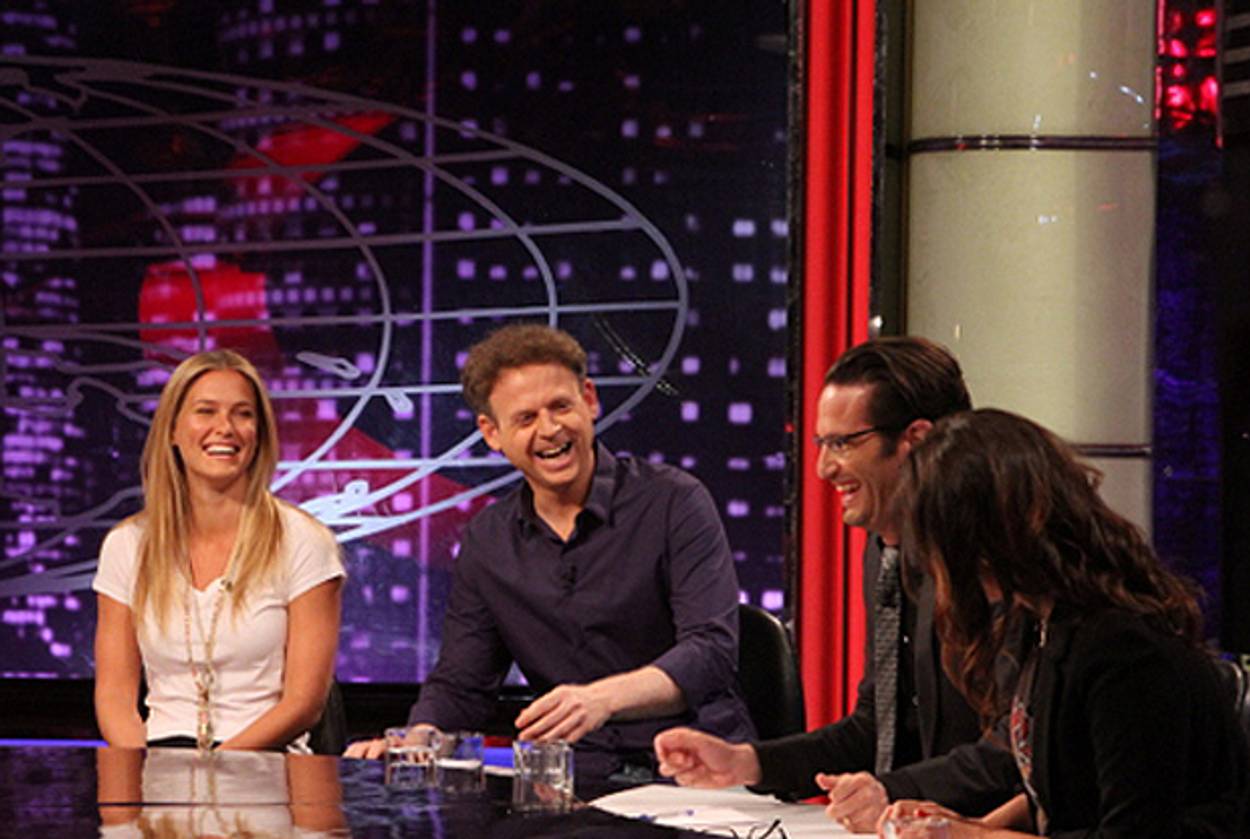Live, From New York, It’s Erev Shabbat
Israeli TV puts on a show, Joan Rivers ensues




“Excuse me,” said the usher, her tone polite but firm, “but you can’t stand in the aisle. Please take your seats.”
No one did. That’s because even though the men and women running the show yesterday evening at NYU’s Skirball Center for the Performing Arts were American, the show itself, and its sold-out audience, was Israeli. It was called Matzav Ha’Uma, Hebrew for the state of the nation, a wildly popular TV show that is broadcast on Friday nights and in which a panel of comedians comment on the news. To get a general idea, imagine Real Time with Bill Maher with considerably more jokes about the Holocaust (“laughter is the best medicine,” quipped the comedienne Orna Banai, “unless you’re Anne Frank. You know, in the attic. In which case you should probably just try to be quiet”). And by its host’s own admission, the show had no real reason to be in New York.
“Why, then, are we here, really?” asked Lior Shlain, trim and leonine, with a consummate comedian’s straight face. He supplied no answer. He didn’t need to. All around him, hundreds of the show’s fans, Israeli expatriates who watch it online, roared, and Shlain and his crew eased into their shtick.
Mostly, it was focused on American-Israeli relations. “Americans are strange,” said Einav Galili, looking quizzical. “When Bibi tries to sell them a scary story about Iran and the bomb, they don’t buy it, but when we sell them a crazy story about a soldier who is taken prisoner and secretly converts to Islam and comes back home and plots to kill the Vice President but is stopped by a mentally ill CIA agent who is pregnant for like two years, they love it.”
It was the perfect joke for an audience of Israeli New Yorkers, equally invested in the most recent episode of Homeland and the latest development in the Middle East, and Guri Alfi, the show’s energetic dynamo, explored this hybrid identity with a series of rapid-fire jokes. “Look at you all,” he said, feigning amazement. “You come here, but you watch TV made there [in Israel], and only hang with Israelis, and only speak in Hebrew, and once in a while you stick your nose out the window and yell ‘America!’ ” That joke, too, was received with a thunder of applause, although a slew of forced smiles suggested that for some in the audience, the joke hit a bit too close to home.
It was time to break the tension, to bring in a pro, someone who could perform comedy alchemy and turn the dark nuggets of topical, political, controversial humor traded by the panel’s members into unblemished comedy gold. Enter Joan Rivers. Or not precisely enter: Rivers had arrived at Skirball earlier in the evening and taped a few zingers that were later edited into an exchange with Shlain. It was mostly tame stuff—the Dead Sea, Rivers joked right after a bit about having carnal knowledge of Moses, was named after her sex life—but it was enough to point out, right then and there, all the differences between American and Israeli comedy. It wasn’t that one was funnier than the other, or edgier, or more innovative. It was that Rivers had a massive industry in which to develop her considerable skills, doing candid camera and Vegas singing and comedy albums and late night gigs and sitcoms and movies, while Shlain and his panelists cut their teeth in a scene where making fun of grim and gritty headlines was the most in-demand comedic art. And for two hours on a rainy New York night, that art was on magnificent display.
Liel Leibovitz is editor-at-large for Tablet Magazine and a host of its weekly culture podcast Unorthodox and daily Talmud podcast Take One. He is the editor of Zionism: The Tablet Guide.